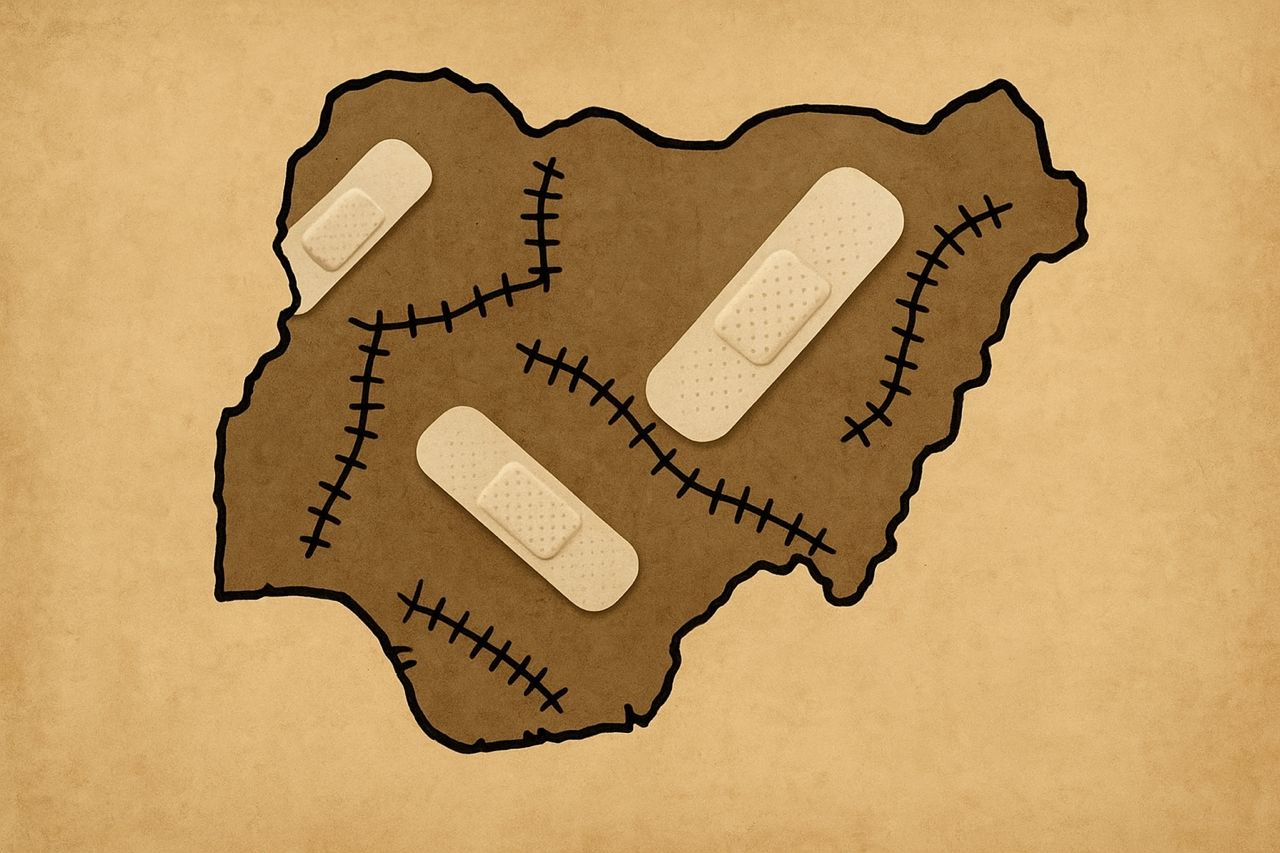Nigeria’s Politics: A Crisis of Selfishness

By Al-Amin Isa
We often speak about the corruption of politicians, but we fail to admit the uncomfortable truth: we, the people, are their enablers. From the lowest councillor to the president, no politician emerges without our votes. The real question is simple yet piercing: do we vote with God in mind, or are we led only by selfish desires?
We hand over our youths to politicians who poison them with drugs and turn them into political thugs. We take their handouts and vote for them, not because they are competent, but because they share our tribe, our religion, or our region.
The Qur’an warns:
“And do not consume one another’s wealth unjustly or send it [in bribery] to the rulers in order that [they might aid] you to consume a portion of the wealth of the people in sin, while you know [it is unlawful].” (Qur’an 2:188)
And the Bible likewise cautions:
“Do not accept a bribe, for a bribe blinds those who see and twists the words of the righteous.” (Exodus 23:8)
The Mechanics of Corruption
Elections in Nigeria are driven by two forces—both born of selfishness. A candidate either buys votes, or he stirs tribal, religious, or regional loyalties. If his opponent spends more, he loses. If his opponent wields the power of incumbency, he is rigged out. But in truth, both are guilty. Everyone seeks to cheat; the difference lies only in who cheats more successfully. You cannot embrace dishonesty, lose to another’s dishonesty, and then cry foul. You are merely two sides of the same corrupt coin.
The Bible reminds us:
“They sow the wind and reap the whirlwind.” (Hosea 8:7)
This is the harvest of dishonesty in politics.
Let us be honest: whether in power or in opposition, Nigerian politicians alike exploit money, tribe, religion, or region to win. If anyone can name a politician who has risen without such tools, let his name be mentioned. For in every case, either you are outspent, out-maneuvered, or out-powered—but in essence, you are no different from the rest.
Citizens Also Carry the Blame
We often forget that corruption does not survive by politicians alone. If electoral officers and police refused unlawful orders, if citizens rejected bribes and resisted appeals to tribal or religious loyalty, if we voted with conscience before God—Nigeria would not be in this pit of crisis.
The Qur’an tells us:
“Indeed, Allah will not change the condition of a people until they change what is in themselves.” (Qur’an 13:11)
And the Bible echoes:
“Righteousness exalts a nation, but sin condemns any people.” (Proverbs 14:34)
This problem belongs to both rulers and opposition alike. All are guilty. Yet we shy away from the truth.
As the Hausa say, “Talle bata yiwa Audi gori”—one thief cannot mock another. How can we speak of reform when we ourselves are complicit, when we lie on top of the wealth stolen from the people? The bitter truth is that we are not yet ready for reform, because selfishness still dictates our choices.
The Rotten Compass of Politics
In Nigerian politics, the compass is almost always tribalism, religion, regional loyalty, or money. If these are the reasons you vote, then you have no moral right to complain afterward.
We know capable, upright people. Yet we refuse to support them. Why? Because such leaders would not bend to our selfish desires. They would govern with justice, not personal favors. And so, we reject them in favor of those who will satisfy our greed.
What we are practicing today is what the Hausa call “Rufar Allah da bayan hannu”—pretending to cover ourselves with God, while turning the palm backward. Until we purify our hearts and abandon selfishness, the leaders we get will always be mirrors of the corruption within us.
The Prophet Muhammad (peace be upon him) taught:
“In the body of man there is a piece of flesh; if it is sound, the whole body will be sound, and if it is corrupt, the whole body will be corrupt. Truly, it is the heart.” (Hadith, Bukhari & Muslim)
And Jesus Christ declared:
“For where your treasure is, there your heart will be also.” (Matthew 6:21)
The Way Forward
We must repent. We must abandon selfishness—whether openly or in secret. We must choose what is right, so that we may reap what is right. But as long as our hearts are filled with lies, deceit, betrayal, and corruption—as long as we sell our votes for money, for hidden interests, or for the empty pride of tribe, religion, and region—then we have no right to lament when the nation collapses.
And when we do lament, let us at least be honest: those tears are not genuine. They are nothing but crocodile tears.

